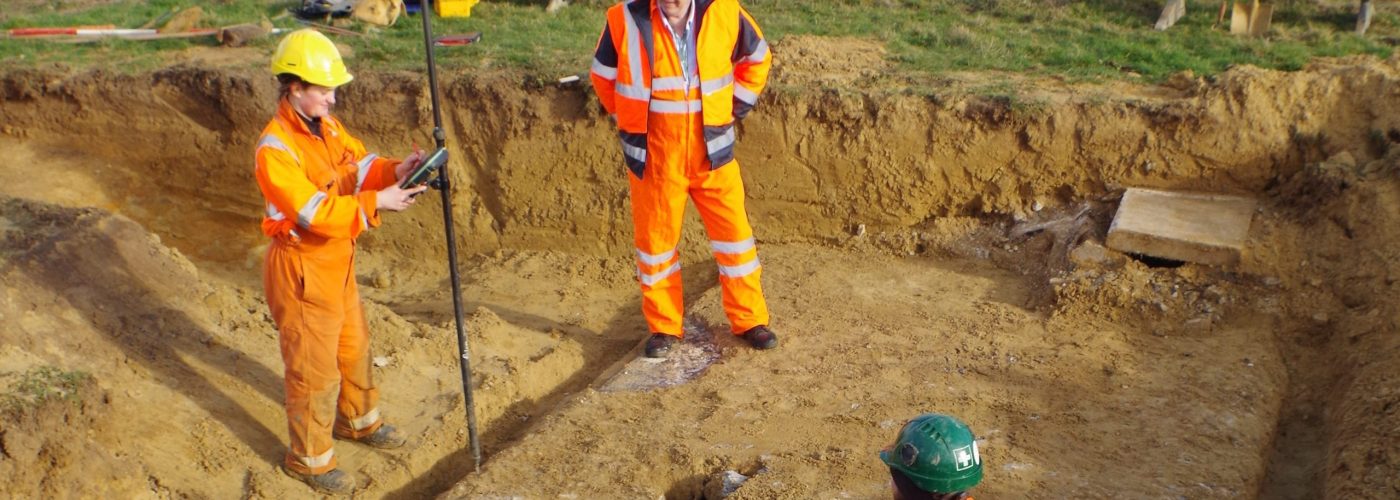Archaeologists excavating a site in Berkshire have discovered an unusual Underground Monitoring Post (UGMP), dating back to the Cold War.
The excavation, undertaken by Wessex Archaeology on behalf of Balfour Beatty as part of the Wokingham Borough Council’s Major Highways Programme, uncovered the post after an anomaly was spotted on the site’s preliminary survey results.
The structure, part of a national network of 1,563 strategically placed UGMPs, was built for the Royal Observer Corps (ROC) in January 1961, part of preparations for the reporting of radioactive fall-out, should a nuclear strike occur.
It is relatively uncommon to uncover the posts in such a way and archaeologists were surprised to discover that the monitoring post presented a further anomaly.
“It is a fantastic find, made more unusual by the fact that it was also constructed back-to-front,” explains Wessex Archaeology Senior Research Manager, Dr Bob Clarke, an expert in the field of Cold War Archaeology. “These structures were built by local firms using prescribed blueprints, which in this case was misinterpreted by the builder. We suspected that an underground room may have survived even though the surface features had been demolished in the mid-1970s. It’s an extraordinary find as many of the sites connected with the Cold War are still secret.”
This spot in the landscape was used as an above-ground observation post from 1936, and as a UGMP from 1961 until closure in 1968. Within the specially equipped and reinforced underground room, three ROC Observers (all volunteers) would monitor the effects of a nuclear attack on this part of the United Kingdom. Details of the power of the explosion, height above ground and subsequent radiation were reported to the United Kingdom Warning and Monitoring Organisation (UKWMO), who, in turn predicted the results and issuing ‘Fall-Out’ warnings to the rest of the country.
The site is located on the route of the Arborfield Cross Relief Road, which is part of the wider Wokingham Borough Council’s Major Highways Programme. Matthew Parkes, Project Manager on the Arborfield Cross Relief Road scheme from Balfour Beatty, who are constructing the road, said:
“This historic discovery is yet another example of the great work, skill and insight of archaeologists, as well as the fine planning, attention to detail and brilliant connection and collaboration of the project team. It’s a thought-provoking experience, one which gives us the opportunity to acknowledge and appreciate how times have changed so significantly since the Cold War.”
The remains of the structure will be removed prior to the construction of the relief road. In acknowledgement of this historic find and to mark its significance, Wokingham Borough Council and Balfour Beatty are planning to install a memorial stone at a date yet to be confirmed. The proposed memorial stone is to mark the location of the Observation Post, in partnership with local groups, Arborfield Local History Society, ROC Heritage Group and Arborfield and Newland Parish Council.





